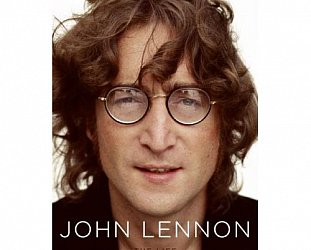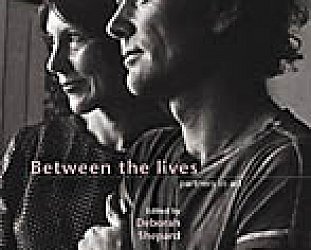Graham Reid | | 3 min read

Pop obsession can be tragic stuff:
those long days in record shops searching for an obscure Flock of
Seagulls 12-inch; the nights spent putting all your albums into
alphabetical order (do solo projects by Roddy Frame go with Aztec
Camera or get their own space?); the decisions to be made when moving
in with someone (do you pool your records and trade in the
duplicates? And if so, whose duplicates?)
This way madness lies -- and it is
captured in all its trivia and stupidity in this revealing story of one man’s “mission to become Sting,” [see extract below] and a
journey into the world of rock and then back to his mum’s.
There are a number of ways ways of
describing this odyssey through pop, but Melody Maker at the time
settled on “bowel-voidingly funny.”
Smith, a journalist, describes in
howlingly hilarious detail his pop obsession from the non-rock
metropolis of Colchester, a city scrupulously devoid of pop stars
(until Blur, who he notes left at the first opportunity and put on
mock-Cockney accents).
This accident of birth doesn't stop the
teenage Smith standing on street corners waiting for Marc Bolan to
pass by. Marc never does although Alvin Stardust did but “I didn’t
say anything though, I hated Alvin Stardust.”
Smith -- who briefly joined a band with
his brothers only to have his mum suggest an obviously naff, but then
unclaimed band name -- tells of the depressing realisation he
couldn't play guitar but would be stuck with keyboards.
“Keyboard players seemed to be people
like Tony Banks of Genesis, perhaps the least expressive man in rock,
whose idea of a crowd pleasing freak-out is to nod gently to
himself."
And the keyboard you could wear guitar
style “didn’t make you look like a guitarist, it made you look
like a keyboard player with a bad case of career envy."
Still, none of this prevented the
determined Smith from joining bands such as Pony (they didn't go down
well in London because Cockney rhyming slang is “pony and trap”
equals . . . you can guess). His most notable success came as one
half of the Cleaners From Venus -- dropped by RCA Germany in 1989
after negligible sales of their debut were astonishingly undercut by
sales of their second – but along the way Smith describes those
schoolyard arguments about who was better: Slade or T. Rex; confesses
to his unhealthy 10cc preoccupation; admits to collecting for its own
sake; reveals a Stalinesque culling of his record collection (he
purged a mere 13 albums -- not for sale but to store in his Mum’s
cupboard, where he found them when writing the book); and of those
difficult decisions about stereos and albums when he moved in with
his girlfriend.
“In the end I got the spare room of
the flat for my own stereo and my own records. We talked maturely
about this in terms of the 'space' I would doubtless 'need', though
it wasn’t me who needed the space, it was my albums.”
Smith went on to write for the likes of
Mojo, Q and the New Yorker. But he‘s the first to admit the idea of
Becoming Sting hasn’t fully gone away.
This is very funny short concentration
span holiday reading for anyone who ever bought an album they knew
they didn’t want - but just had to have. And maybe still have it.







post a comment